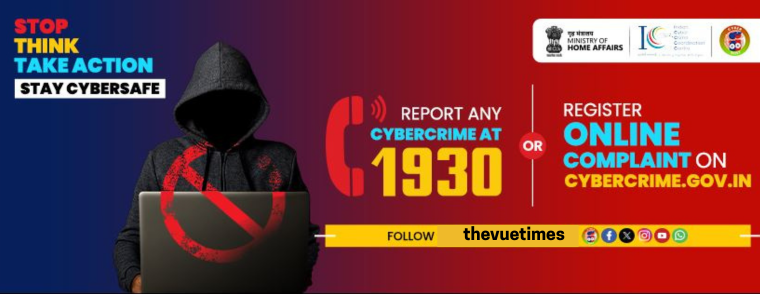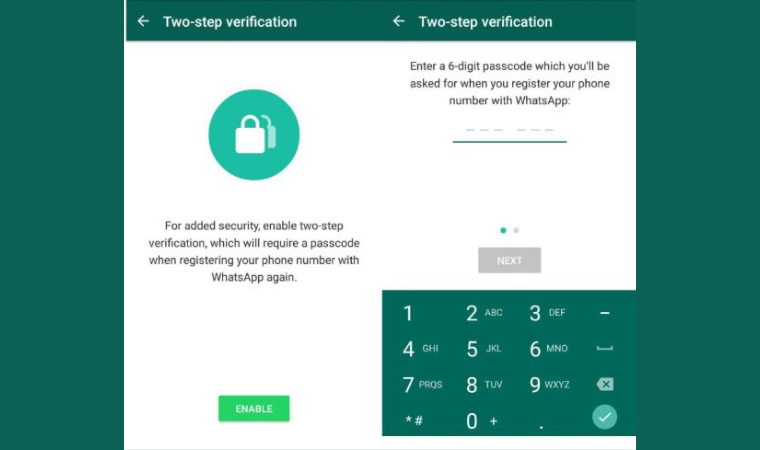In the modern, highly connected world, our online lives are sometimes better and more significant than our physical ones. We trust the internet with almost everything to send money to friends through UPI, chat with friends on WhatsApp, buy products online, or save memories on cloud services. However, with such convenience comes a threatening fact, scammers, hackers, and fraudsters are ready to use personal information and finances.
Scammers recently targeted Indian actors in a WhatsApp scam, sending suspicious calls and messages while posing as film producers and agencies, reminding us that even the most powerful and tech-savvy individuals can be unsuspecting. At other occasions, the fraudsters attempted to lure them into providing personal details or to participate in video conferences, which may be later used to extort money.
When high-profile users are able to be targeted, ordinary users are yet more vulnerable. The positive side is that you may remain safe on the Internet and keep your personal privacy by being aware, watchful, and following simple precautionary measures. This blog will also take you through the reasons why online safety is important, how scams are perpetrated, and what you can do today to protect yourself.

Online Safety Matters Like Never Before
The internet is not merely a browsing tool anymore, it is the lifeline of our lives. Alas! the more we rely on it the more we are exposed. This is why online safety is something to be concerned about:
- Financial Risks: UPI scams, fake investment schemes or phishing links are only a few examples by which fraudsters can empty bank accounts in minutes.
- Privacy Threats: Photos, personal chats and identity documents can be stolen by hackers and then used to blackmail or commit identity theft.
- Reputation Damage: Cybercriminals usually use hacked social media accounts to disseminate misinformation or harass them.
- Emotional Stress: Money is not the only thing to lose when becoming a victim of an online scam, as it can be accompanied by anxiety, embarrassment, and mistrust as well.
The WhatsApp fraud case has demonstrated that fraudsters are getting more advanced, audacious, and persuasive. They take advantage of human feelings of trust, fear, urgency to control victims. This is why online safety is no longer an option but it is a life skill that every one of us requires.
The way Online Scams work
In order to defend yourself, you should also learn about how scammers work first. The most typical strategies are listed below:
1. Phishing Messages
The links which are sent by fraudsters are made to appear as those of trusted firms (banks, delivery apps, social media platforms). The connection of these links may bring you to spoofish sites, where you may lose your login information or malware will be installed.
2. Impersonation
Fraudsters impersonate an individual that you are familiar with or trust. They impersonated film producers or casting agents in the WhatsApp fraud case. Otherwise, they can also pose as bank officials or even a family member in need.
3. Urgency & Fear Tactics
They cause panic by stating such things as, your account will be closed in 24 hours, or, you must send money before it is too late. Such psychological gimmicks drive victims into action without considering it.
4. Suspicious Cellphone Calls and Video chats
Fraudsters usually demand a video chat and record it and use it to demand money or embarrass the victim.
5. Fake Job/Investment Offers
Silver linings include promises of easy money, part-time work or doubling your investment. Numerous individuals end up in the trap due to financial desperation.
The awareness of these ways is the initial step towards self defense.

Simple Measures to be safe on the internet
Now it is time to enter into the very practical steps that you can undertake today.
1. Protect Your WhatsApp and Social Media
- Switch on two-factor authentication (2FA) on WhatsApp, Instagram, Facebook, and email.
- Add strangers to your profile picture and profile last seen.
- Do not accept friend requests or messages of those who are not known.
2. Watch Out the Calls and Messages
- Always disregard any suspicious international calls unless they are of a familiar number.
- When a person states that he/she represents some official organization, make direct verification by means of his/her website or helpline and only then reply.
- Block and report spam or other numbers that are unknown.
3. Think Before You Click
- Never follow links sent in SMS, email, and WhatsApp.
- Pass the cursor over the link (on the desktop) to determine whether the URL is suspicious or not.
- Do not download APK files or applications which are not based on the official app store.
4. Protect Your Financial Data
- Do not disclose OTP, UPI PIN or card details to anyone including a purported employee of your bank.
- Use credible applications to make online payments.
- Have daily transaction alerts on all your accounts.
5. Strengthen Your Passwords
- A password manager should be used rather than the reuse of passwords.
- Use unique passwords that contain both numbers, letters and symbols.
- Alter passwords regularly, particularly email and financial applications.
6. Beware of Public Wi-Fi
- This is because one should never type in sensitive information in a public Wi-Fi.
- When relating unsecured networks, use a VPN.
7. Educating Yourself and Loved Ones
The elderly or less technical persons are the biggest victims of scammers. Educate family members on tricks to be able to identify and prevent them.
What to Do If You’re Targeted
Despite the measures, you can get a proposed scam. Here’s what to do:
1.Do not panic. Fraudsters are guided by your feelings.
2.Do not engage further. Close the number or account instantly.
3.Screen shot suspicious conversations, numbers or emails.
4.Report the incident:
- In WhatsApp: Tap on Settings – Help – Report.
- Cybercrime helpline: 1930 National.
- Cyber Crime Report Portal: cybercrime.gov.in.
5.Notify your bank as soon as possible in case of sharing financial information.
6.Report to your contacts in case your account is hacked, to prevent falling victim as well.
Long-term Internet Safety Behaviors
- Make sure that all the apps and software is up to date.
- Check suspicious account activity on a regular basis.
- Keep valuable files in encrypted and safe drives.
- Store your information in various secure sites.
- Keep abreast of the new scams by keeping track of news warnings.
- Good Online Case Study: How Awareness Saves.
Take this example: A young professional in Delhi was contacted on WhatsApp and told that she had won a gift voucher on a well-known brand of e-commerce. The message requested her to please click on a link and input her UPI. She remembered having read something online that talked about scams and she knew it was a phishing trap. She did not succumb to it but reported the message, which could have spared her the financial loss.
The story emphasizes the importance of a small amount of awareness in averting huge disasters.

Final Thoughts
The WhatsApp scam against the Indian actors demonstrates that every person can be a victim, both famous and ordinary. However, we should not live in fear; rather we should live in awareness. Online safety involves creating intelligent digital behaviors such as locking the doors at night or looking both ways before crossing a road.
The world does not need some detailed technical knowledge to protect your personal privacy. Harmless measures, such as the ability to perform two-factor authentication, being vigilant to unsuspicious messages and never disclosing sensitive details, can go a long way in ensuring your safety.
The digital world has unlimited possibilities, but it is also associated with risks. As long as you are aware and active, then you can embrace the advantages of technology without becoming a victim of it. Always keep in mind that it is within your own control how to stay safe–and ignorance is your best defense.









